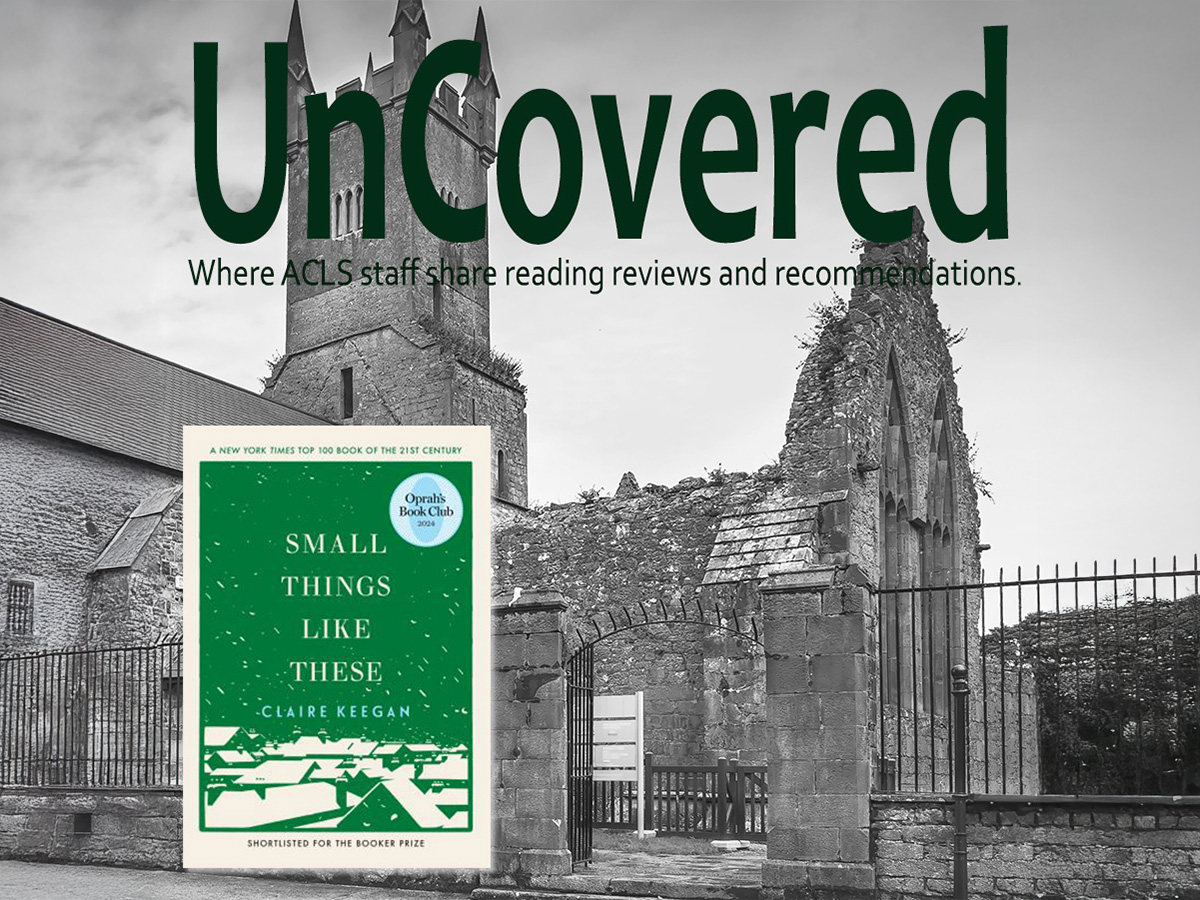
In Claire Keegan’s poignant novella, SMALL THINGS LIKE THESE, the quiet life of Bill Furlong, a coal merchant in 1980s rural Ireland, is subtly disrupted by a profound moral awakening. As Christmas approaches, Bill notices unsettling events at the local convent, a place shrouded in whispers and unease. Keegan masterfully evokes the atmosphere of a close-knit community bound by tradition and unspoken truths, where the weight of history and the power of the Church loom large. Bill, a man of simple routines and deep empathy, is haunted by memories of his own unconventional upbringing. These memories, coupled with his growing unease about the convent, compel him to confront the disturbing reality of the Magdalene Laundries, institutions where “fallen women” were confined and exploited.
Keegan’s prose is stark and evocative, capturing the harsh beauty of the Irish landscape and the quiet desperation of its people. SMALL THINGS LIKE THESE is a powerful exploration of complicity and conscience, of the small acts of courage that can challenge deeply ingrained injustice. Keegan’s masterful use of understatement and her keen eye for detail create a haunting and unforgettable story that lingers long after the final page. This novella is a testament to the enduring power of the human spirit in the face of adversity, and a stark reminder of the importance of speaking truth to power.
The theme of resilience is a powerful and inspiring aspect of Claire Keegan’s works. Her characters often face significant challenges and adversities, yet they find ways to endure and overcome their circumstances. This resilience is portrayed through their quiet strength, determination, and the small acts of kindness and courage that make a big difference in their lives and the lives of others. In SMALL THINGS LIKE THESE, Bill Furlong’s resilience is evident in his decision to act on his conscience, despite the potential consequences, his ability to stand up against societal pressures and do what he believes is right. Keegan’s portrayal of resilience reminds us that even in the face of hardship, there is always hope and the possibility for change. It’s a theme that resonates deeply because it reflects the universal human experience of striving to overcome obstacles and find meaning and purpose in life.
Review by Collette Jones, ACLS Egg Harbor City Branch





